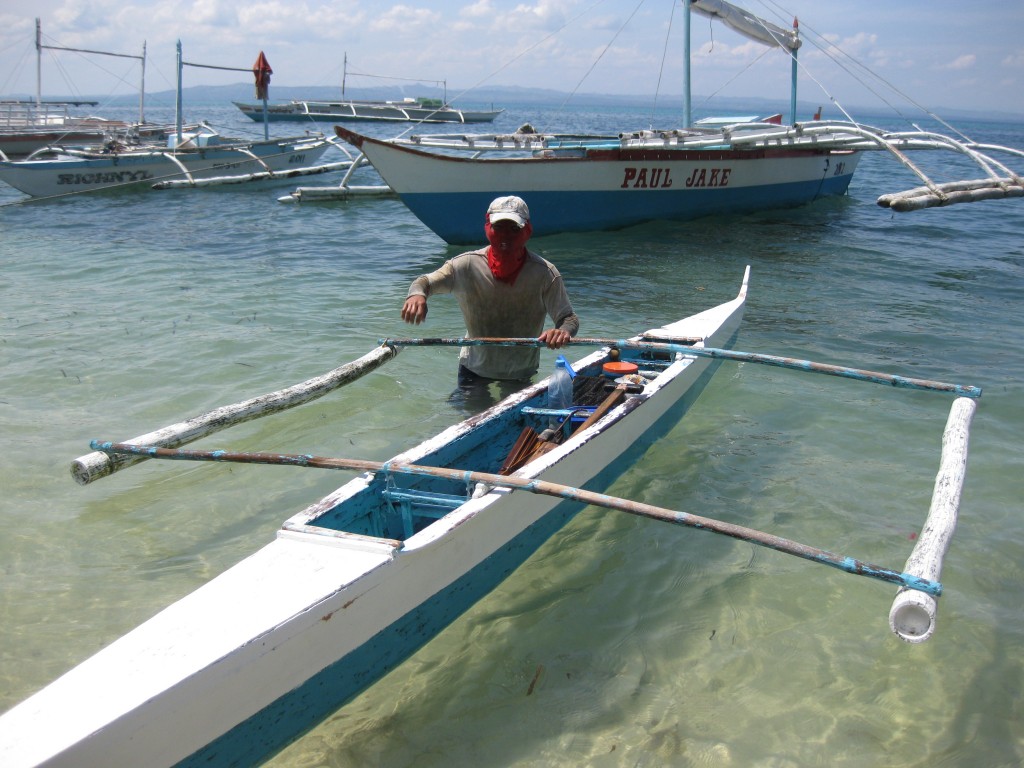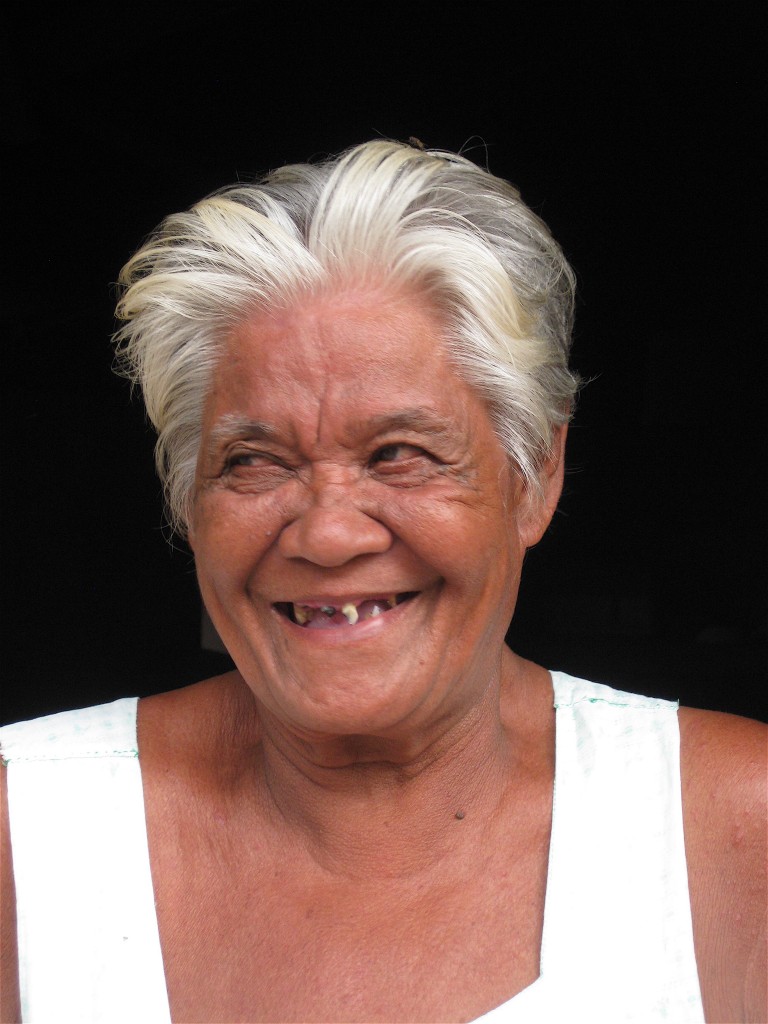Editor’s note: This post is the second installment of Climate and the Coast, Angela Whitney’s summer blog about her research on fishing communities in the Philippines. Click here to read the first entry.
The baby’s head is so swollen that her eyes are forced back into her head. Flies swarm over her when they remove the mesh covering her prostrate body. Her gender is only apparent because of her naked lower half; her distorted face does not reveal any feminine features.
The infant, who is about six months old, has hydrocephalus: excess fluid buildup in the brain, caused by the blockage of natural drainage valves. I look at the baby and at her parents, at the eyes of the villagers staring at me hopefully, waiting for me to act. But I am helpless; I wouldn’t know where to begin aiding this child.
I stand cooing for a minute before someone leads me away, down the narrow sandy street. People in one of my research sites commonly believe that I am there to aid with illness, poverty, and general issues of wellbeing. From behind thin bamboo fences people call out at me, shouting things like “Are you giving away medicine?” and “Is she here to give money?” As we make our way down the street, flocks of thirty children patter noisily behind me, my research assistant, and the employee of the mayor who escorts us from house to house. They all want what I cannot provide.
***
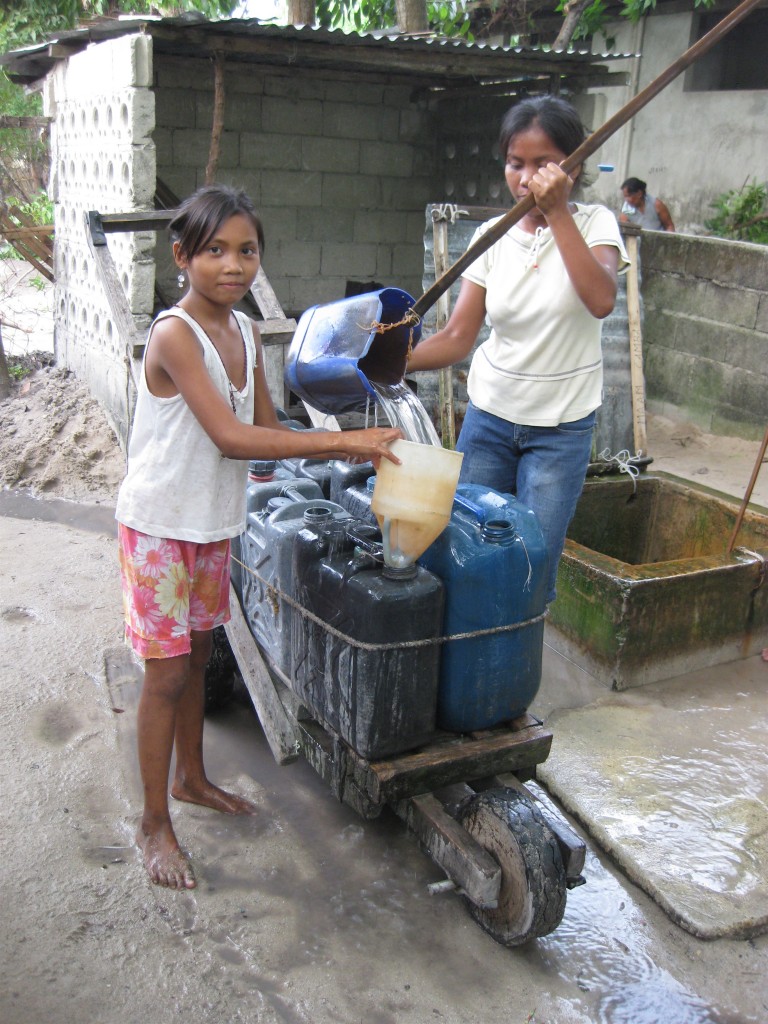
Although the focus of my research is still climate change, the impacts of climate change upon fishermen affect all other aspects of their lives, from income and housing to food scarcity –– and, of course, their health.
Climatic events such as typhoons, drought, strong winds, and heavy rains all directly influence fishers’ livelihoods. People who rely upon the sea do not have a source of income when they can’t go fishing, and they can’t go fishing if the weather conditions do not allow it. Obvious enough, but this simple logic didn’t prepare me for what I now see during my interviews with local fishers.
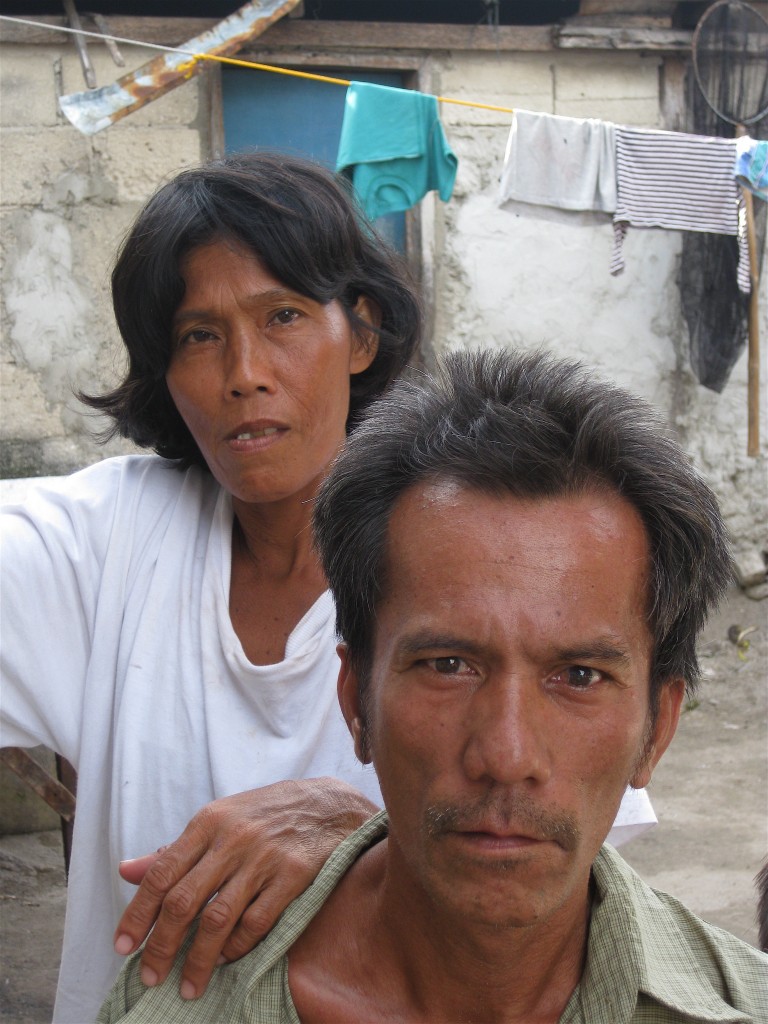
One afternoon, halfway through my six scheduled interviews, my entourage and I join a man in his tiny nipa hut. The floor is sand and the walls are made of slatted bamboo and woven palms. We sit on a crude wooden bench on the right side of the small room. He sits at the back, next to the large cement water cistern holding rainwater, which is what the community uses for drinking. (All other water is collected from a partially saline well on the outskirts of town and hauled in plastic jugs back to the village.)
The man is in his mid-forties. His face is dark brown and smooth, and glistens in the dim light. He looks worn by work; he speaks softly and in short sentences. When I ask him about the problems that fishermen face in his community, his face barely contorts, but his eyes brim with tears. He brushes them away with a swift gesture, and hesitates before answering the question.
He tells us that he is overcome by the difficulties because they are so immense. He has a “master” who dictates when he can and cannot fish. As I understand it, his master owns the fishing equipment and boat; without the permission of his boss, our participant has no means of making a living. If he doesn’t get consent to go, he must do without income and food.
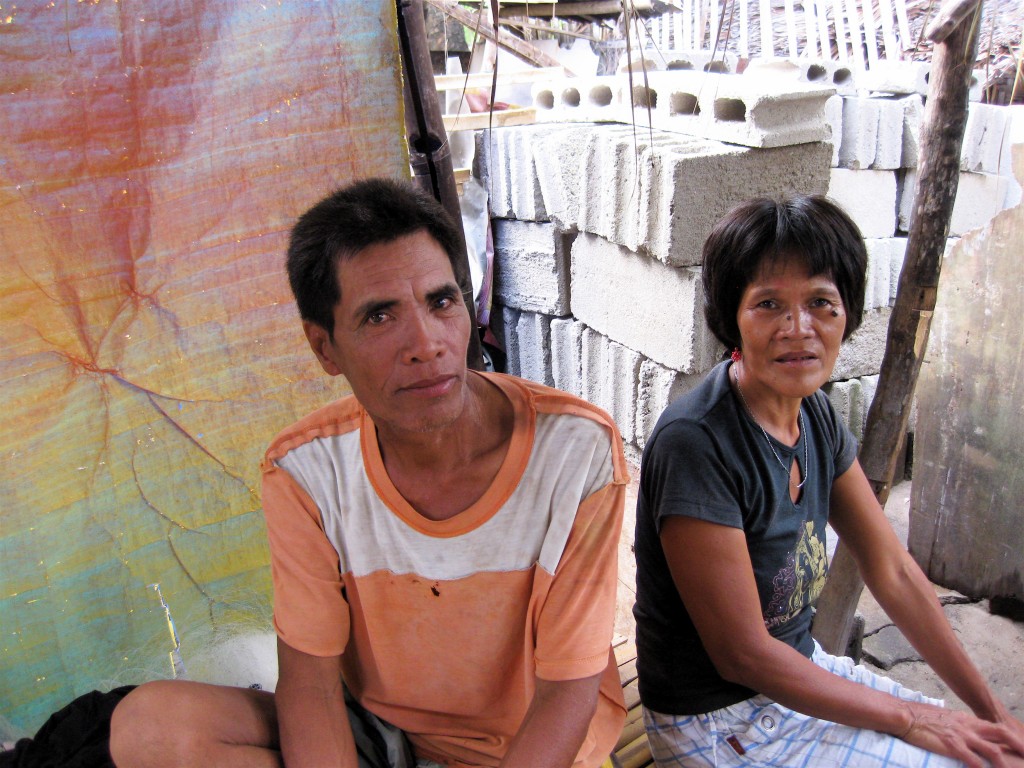
This desperation is everywhere. We spoke with one couple who have been nearly broken by declining fish stocks: where once they caught four or five kilos a day, now they catch two, and two or three days a week they catch nothing at all. On these days they eat only one meal, supplementing their diets with wild coconuts.
Another fisherman was forced to stop fishing to take care of his wife, who suffers from both cataract-induced blindness and the after-effects of a stroke. The couple has no income whatsoever, and survive by getting food from their neighbors and on credit at the tiny shops that dot the island. The pair was initially delighted that I had come to interview them, anticipating that I had also brought rice and medicine. But when they learned the true reasons for my visit, tears began to spill freely from the woman’s milky eyes. She was comforted by the hands of her husband and my assistant, but spent much of the interview soundlessly crying, rocking in her thin nightdress.
The tears, distress, poverty and frustration that I have encountered threaten to overwhelm me. The problems are immense and immediate: fishers lack food, water, and sanitation, and it is easy to feel that these deficits are all that truly matter. Of course I want to address sickness and hunger, and help provide all the goods and services that are essential to a basic human experience free of suffering. I question the value of the pain that I am causing with every question, the pain that comes with the expectations that shatter when I enter a room and its occupants slowly realize that I am powerless to help them.
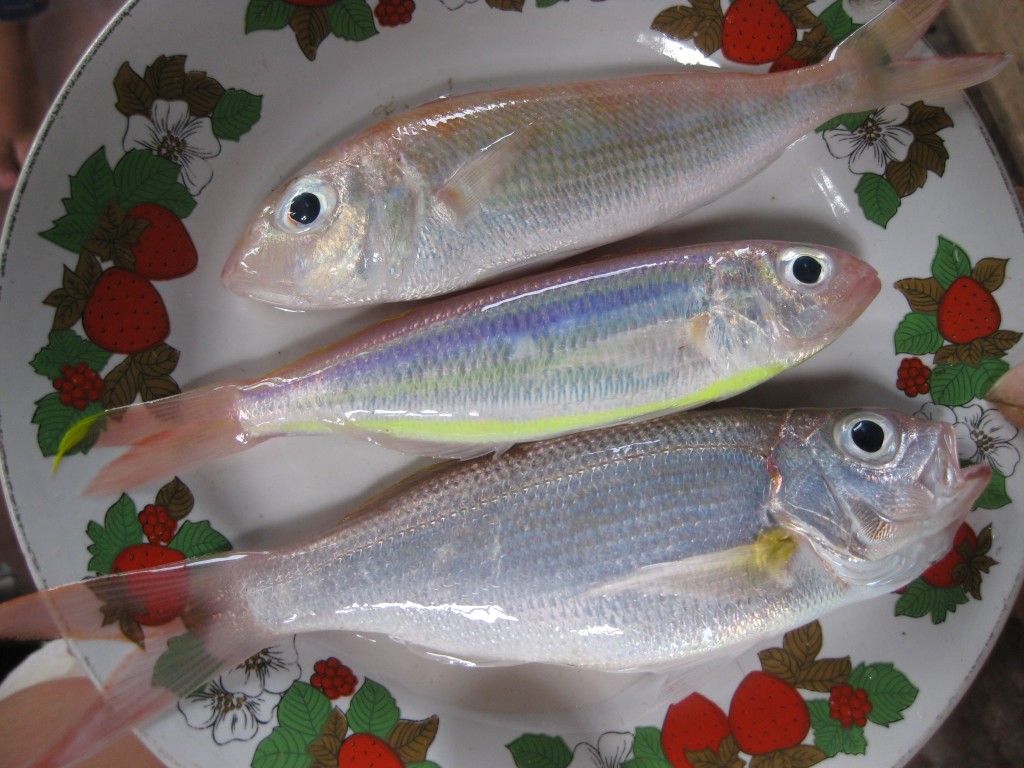
And then I listen. And I hear fishermen describe how they had to move their house to higher ground to escape rising sea levels, and how fish stocks are declining due in large part to increasing ocean temperatures, and how the community was battered by 21 typhoons last year, compared to the one or two they used to experience. I have no illusions that my research and the stories these people tell me will inspire the global change necessary to reverse the current climate trends. And while I hope my recommendations to local government officials will result in some policy changes, I am not optimistic that those effects will be substantial.
But I still think that there is great value in understanding the effects that climate change has on every aspect of these fishers’ lives. And without the confidence that my research is important, I couldn’t handle the illness, hunger, and weariness that I see here. I couldn’t move past the helplessness of being witness to a baby who is going to die because her parents can’t afford surgery. It’s hard for me to look past the individual cases and think about these issues on a broad scale, yet I hold out hope that this wider perspective will result in some positive change.
